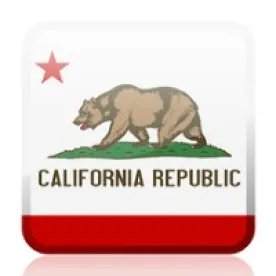The California Court of Appeal has upheld an award of monetary sanctions against a company that brought a lawsuit against its competitor that the court found was meritless and intended to stifle competition. Cypress Semiconductor Corp. v. Maxim Integrated Products, Inc., H038555 (Apr. 28, 2015). Cypress sued Maxim for trade secret misappropriation, alleging Maxim was attempting to hire its employees in violation of California law. Cypress pled two theories: (1) the names of its employees were trade secrets and Maxim wrongly obtained and exploited a list of its employees, and (2) Cypress was seeking to hire its employees to misappropriate their knowledge of Cypress’ touchscreen technology. The trial court denied Cypress’ requests for preliminary relief, finding Cypress had no evidence to support its claims. One piece of telling evidence the court noted was a declaration submitted by Maxim’s attorney demonstrating she learned the name of nearly every Cypress employee who worked on touchscreen technology by spending an afternoon perusing LinkedIn. Facing an upcoming hearing on Maxim’s demurrer to its first amended complaint, Cypress voluntarily dismissed its lawsuit without prejudice. Maxim thereafter sought and was awarded $180,817.50 in sanctions on the ground Cypress had brought its suit in bad faith, which under California law has two prongs: (1) objective speciousness of the claim, and (2) subjective bad faith in bringing or maintaining the action, i.e., for an improper purpose.
The appellate court’s reasoning on the improper purpose prong is worthy of particular note. It found the following weighed in favor of a finding that Cypress brought and maintained its lawsuit for the improper purpose of intimidating Maxim and other Cypress competitors against soliciting Cypress’ employees under the threat of an expensive but unmeritorious lawsuit:
In a pre-lawsuit letter Cypress sent to Maxim, Cypress asserted claims of wrongdoing it could not support with evidence in the lawsuit;
- In the pre-lawsuit letter Cypress wrote, “The next person you try to hire illegally from Cypress will not be cheap for your company, as Cypress will spare no effort or legal expense to protect its people and its technology” (emphasis added by court);
- In a press release Cypress issued the day it dismissed its lawsuit, it claimed only that Maxim acted “unfairly,” not “unlawfully,” and in the press release Cypress did not point to any information tending to show that Maxim was doing anything more than seeking the most qualified candidates for openings in its own enterprise;
- Cypress waited to amend its original complaint until the last day on which it could have filed an opposition to Maxim’s demurrer, requiring Maxim to file another demurrer, even though the amendments were not substantive;
- Cypress took over four months to respond to Maxim’s demand for specification of the alleged trade secrets at issue;
- In response to an interrogatory seeking the basis for Cypress’ claim that Maxim had misappropriated Cypress’ touchscreen technology, Cypress stated it was “in the process of investigating and compiling documentation regarding its allegations in its Complaint”;
- Cypress’ attorney suggested counsel meet and confer over Cypress’ discovery responses in two weeks, but in the interim Cypress dismissed its lawsuit and did not notify Maxim until it issued its press release three days later; and
- Cypress pursued a baseless motion to seal the declaration filed by Maxim’s attorney which contained the names of Cypress employees that the attorney compiled via perusing LinkedIn.
California law permits businesses to protect their trade secrets and other intellectual property from misappropriation by competitors. However, California also has a well-known public policy favoring lawful competition, which prohibits the use of unmeritorious lawsuits to stifle competition.




 />i
/>i

